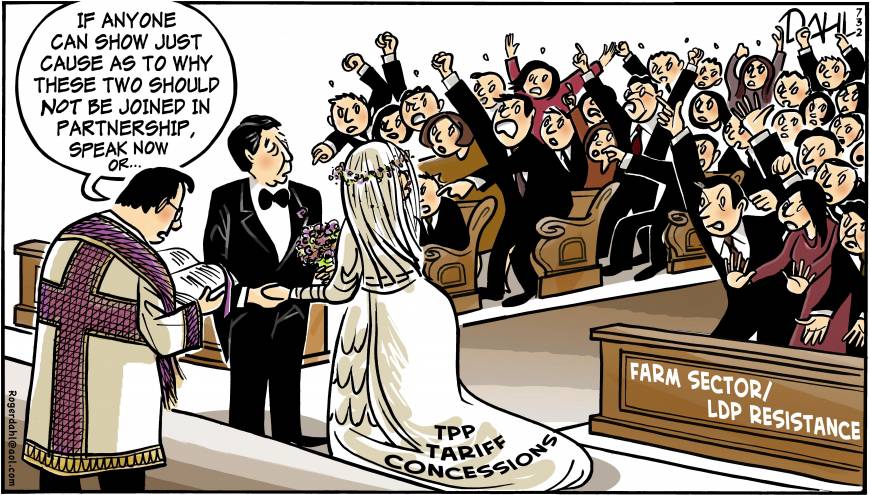Simon Roe writes:The United States Congress has now given President Barack Obama so-called fast-track negotiating authority to conclude the Trans-Pacific Partnership (TPP), the proposed mega-regional free-trade agreement among the US and 11 other countries. But Obama’s victory was not an easy one.
But the Democrats have a point. They want the Obama administration to ensure that the TPP includes core international labor standards for all participants, a high level of environmental protection, and access to affordable medicines, among other measures.
Though Obama has promised that the TPP will be the most progressive trade agreement in history, which is achievable, the shroud of secrecy that surrounds almost all details of the negotiations has made it difficult to evaluate claims and counterclaims on this point.
In 2005, only 15 House Democrats voted for the Central American Free Trade Agreement, precisely because its terms on labor standards and the environment were so weak. In 2007, by contrast, 109 House Democrats voted in favor of the US-Peru Trade Promotion Agreement, precisely because its terms had been adjusted as requested and in line with the May agreement. And, in October 2011, the House approved the much-debated US-Korea Free Trade Agreement with 59 Democrats in favor. The extent of congressional Democratic support depends directly on what exactly is in any trade agreement.
The main principles in the May 2007 agreement are straightforward and difficult to oppose. Workers should be allowed to form trade unions. Child labor should be abolished. All forms of forced or compulsory labor – including human trafficking – should be prohibited.
Moreover, the agreement calls for the inclusion of existing international environmental standards in free-trade agreements, including rules concerning pollution and endangered animals. Likewise, such agreements should support fair access to pharmaceutical patents and to the data used to prove the safety of medical treatments. And the May 2007 agreement makes it clear that “foreign investors in the US will not be accorded greater substantive rights with respect to investment protections than US investors in the US.”
It would not be difficult for the administration to give Levin and his colleagues what they want.
The most difficult challenge for the Obama administration may be the issue of currency manipulation. Democrats are pushing for provisions to prohibit or limit currency-market intervention by central banks that is intended to give a country’s exporters a competitive edge. This is also a huge potential problem with the TPP, because competitive devaluations can swamp any other gains from trade by an order of magnitude, with substantial negative effects on US jobs. The administration urgently needs to take this point on board.
The TPP represents an important opportunity to write better rules for international trade and investment. But we are not there yet.

